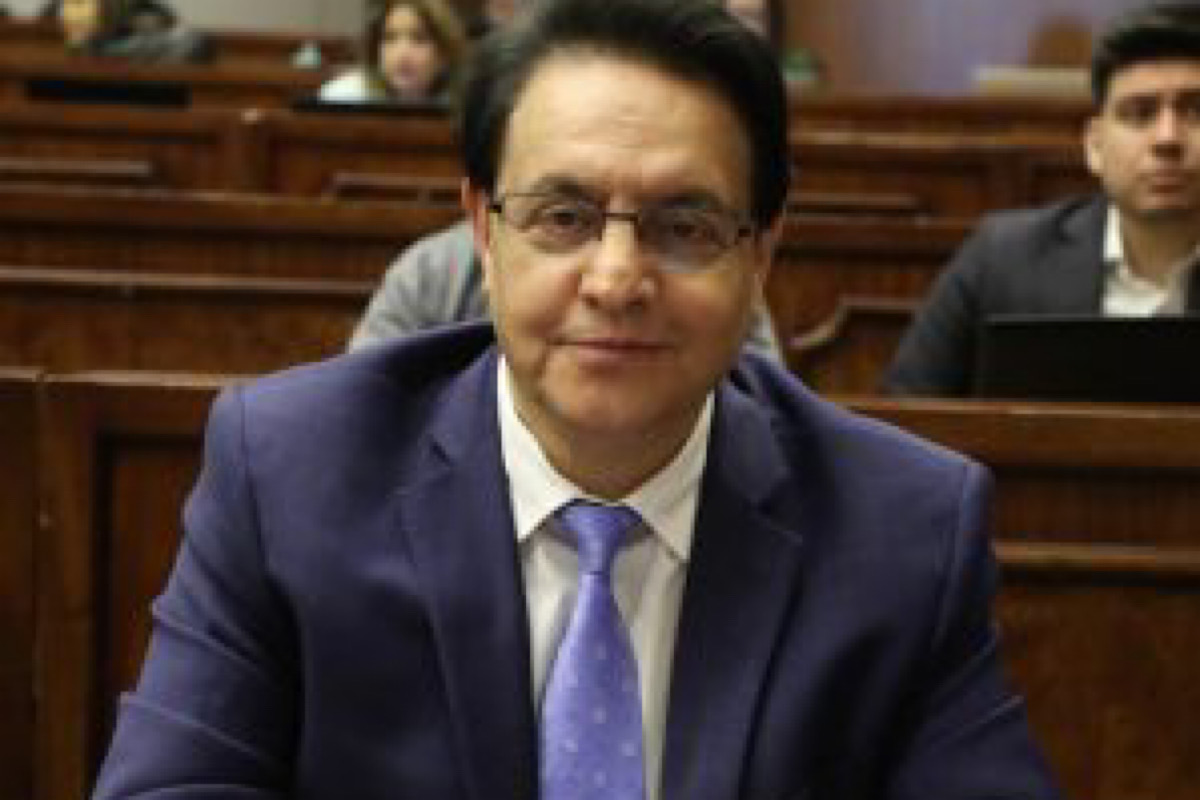Betting racket busted, 11 held in East Delhi
An illegal betting racket was busted by the Crime Branch Unit of Delhi Police with the arrest of 11 people from the Govindpuri area in South East Delhi, a police official said on Sunday.
Born on October 11, 1963, in Ecuador, Fernando Villavicencio was a versatile figure who made substantial contributions to the realms of politics, journalism, and activism.
Statesman News Service | New Delhi | August 10, 2023 7:16 pm

Fernando Villavicencio
Born on October 11, 1963, in Ecuador, Fernando Villavicencio was a versatile figure who made substantial contributions to the realms of politics, journalism, and activism.
Possessing unwavering values and a profound commitment to fairness, he indelibly influenced Ecuador’s socio-political environment.
Advertisement
In a tragic turn of events, Fernando Villavicencio, a contender in Ecuador’s upcoming presidential election, was killed during a campaign event in the capital city on Wednesday. This horrifying incident marks a distressing escalation of violence and crime in the South American nation.
Advertisement
Ecuador’s President, Guillermo Lasso, expressed his firm commitment to ensuring justice for this heinous act. He emphasized that while organized crime may have made strides, those responsible will face the full extent of the law. As a response, President Lasso has declared a state of emergency for a span of 60 days, swiftly mobilized the armed forces across the entire country, and announced three days of national mourning.
Despite this tragic incident, the scheduled presidential election on August 20 will proceed as planned, as affirmed by Diana Atamaint, the President of the Electoral Council, on Thursday.
Fernando Villavicencio initially made his mark as a fearless journalist in Ecuador, exposing corruption and violence. His courage led to clashes with power, even forcing him into exile in Peru due to his criticisms of former President Rafael Correa’s regime. He faced imprisonment until his exoneration in 2018.
Returning to Ecuador, Villavicencio transitioned to politics, winning a seat in the National Assembly in 2021. His tenure emphasized transparency, accountability, and environmental protection.
In a bold move, he pursued the presidency in the 2023 election, focusing on battling corruption, escalating violence, and environmental preservation. His “narco state” description for Ecuador’s crime issues garnered attention. Villavicencio’s campaign resonated with corruption-weary citizens. His journey was marked by hurdles, from candidacy challenges to fluctuating polls.
The killing took place less than a fortnight before the nationwide election. Just a day prior to his demise, Villavicencio had lodged a complaint with the Justice Ministry against an unspecified oil company. The specifics of this report have not been revealed. Against the backdrop of escalating gang-related unrest, The Washington Post highlighted the suspicious timing of his murder. During his bid for the presidency, Villavicencio encountered numerous death threats, including one attributed to the Sinaloa Cartel, with the most recent threat occurring just a week before the tragic shooting incident.
had vowed during his campaign to combat drug cartels that have transformed the Andean nation into one of the globe’s most perilous regions. His murder during a rally merely 11 days before the election, where he was regarded as a strong contender for a runoff, throws the competition into disarray.
This assassination lays bare the rapid encroachment of narcotrafficking-linked crime upon Ecuador. This trend is unfortunately familiar in Latin America and the Caribbean, accounting for 35% of global homicides despite having less than 10% of the world’s population.
Much of this violence is fueled by the soaring production of cocaine, fentanyl, and other destructive hallucinogens, seeping into the realms of politics, commerce, and everyday existence. The battle among criminal factions for market control and logistical routes results in the yearly assassination of numerous local politicians, notably prevalent in Mexico and Brazil. Most of these lesser-known cases go unresolved.
Villavicencio, who was provided police protection due to death threats, adamantly asserted, “We will not make deals with the mafia.”
The demise of such a prominent figure evokes memories of the peak of cartel violence in Colombia during the 1980s and early 1990s, a period marked by the assassination of four presidential candidates.
The tragedy in Ecuador highlights the hazards and complexities faced by leaders throughout Latin America in their struggle to dismantle the drug-fueled dominion of organized crime.
Advertisement
An illegal betting racket was busted by the Crime Branch Unit of Delhi Police with the arrest of 11 people from the Govindpuri area in South East Delhi, a police official said on Sunday.
In a message to the 12th Regional 3R and Circular Economy Forum in Asia and the Pacific being held in Jaipur, he also mentioned that India has always been more than willing to share its experiences and learning in its journey towards circular economy.
"Karnataka is on the way to becoming the global creative capital." This big claim comes from Karnataka IT, BT and Panchayati Raj Minister Priyank Kharge after the culmination of a three-day global congregation of experts from cutting-edge technologies and professionals from the creative fields of the arts, films, gaming, and the entertainment world from across the globe.
Advertisement
